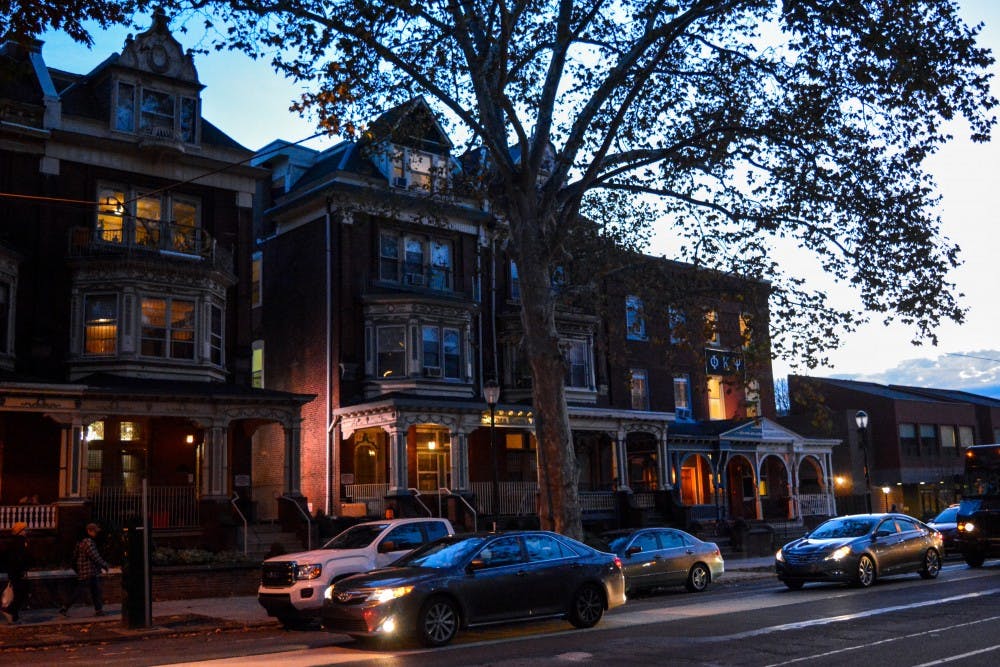For many freshmen in the Class of 2022, the highlight of New Student Orientation will be the flurry of social events available on campus. But over the past year, there have been several changes both to the policies and to the culture of the social scene at Penn. These changes stem from the recommendations put forth by the Task Force on a Safe and Responsible Campus Community, which have resulted in student backlash.
In the fall of 2017, Penn’s reconvened Task Force introduced a new set of alcohol and drug guidelines after a 2016 sexually suggestive email was sent to a group of freshman women by off-campus fraternity OZ. These new regulations, which were officially implemented in the spring, also saw a simultaneous spike in the number of events that were shut down. Registered parties from fall 2016 to fall 2017 have also increased by 53 percent.

Proper registration includes hiring University-sanctioned bartenders for $25 per hour and security guards for $32.50 per hour. The regulations also included the introduction of graduate student, staff member, and Penn-affiliated event observers who patrol late night events for $35 per hour.
These new guidelines, which were officially codified March 2018, include a limit of four drinks per person at any social event, the prohibition of kegs at student-run events, no distribution of alcohol past 1 a.m., and an outright ban on drinking games and competitions.
These changes prompted a wave of student criticism that the University is “encroaching on student liberties” and making social events more expensive, especially for non-Greek extracurricular groups that cannot afford the costs required to comply with University standards.
Over 2,500 Penn students signed an online petition, created in September 2017, titled “The Ability to Have a Social Life at Penn” in an effort to convince the University to overturn the new regulations.
Over the past year, Penn students say that the fraternity-dominated party scene at Penn has already begun to change, and this year’s NSO will likely feel the effects.
RELATED:
Your guide to Penn's task force recommendations and how its implementation has affected students
Penn formally implements controversial social guidelines recommended by Task Force
College sophomore Christina Li said the new policies have “made people want to be on campus less” when going out because they’re “surrounded by security.” Li added that in her experience, the Task Force has been especially quick to shut down on-campus “day parties,” which has increased the number of students who attend “downtowns,” or parties held at venues off campus. These events often cost more both for those hosting the events and for those attending.
“Downtowns are a lot fancier and upscale,” Li said, adding that unlike the often “messy” frat parties, downtown parties can be “classy” and “a lot of fun.” She said that the pictures taken by professional photographers at downtowns are often posted online, as students feel it is necessary to appear “sceney.”
Are you a new student? Check out some of our other stories designed just for you, from a list of the biggest controversies on campus last semester, to a guide on professors you should know before the first day of school.
But Wharton sophomore and Sigma Nu fraternity member Timothy Chung said that downtowns, which are usually only open to students over 18 with drinks available for students over 21, also have drawbacks. As opposed to the typically free frat parties, downtowns cost money to enter, money for drinks, and money for an Uber.
“I started going to more downtowns and there comes a cost, all the Ubers and entrance fees add up,” Chung said.
Li echoed these sentiments, saying, “I definitely feel like people are spending a lot more money on parties now than the initial start.”
Yet, while regulations may be moving parties off campus, the party scene at Penn has retained its reputation for having a vibrant party scene.
“That’s what Penn is really known for, being the Social Ivy,” Chung said. “I don’t think the Task Force has changed that in a sense, it’s just kind of evolved it a little bit.”
Sobhit Arora, a sophomore at Brown University, said the first week of college at Brown is not dominated by organized parties for freshmen like it is at Penn.
“You just kind of hang out with the friends you’ve made initially,” Arora said, adding that getting into parties at Brown initially involves knowing one person in a frat or program house who can allow you to enter. “Frat parties are thing, but I don’t think they’re done at the scale they are at other colleges like Penn.”
While a culture of “downtowns” exists on Brown’s campus, Arora said off-campus venues are ticketed in order to raise money for groups or charities, which also takes place at Penn but is certainly not the focus of the events themselves.
For the incoming class of 2022, Chung stressed the importance of finding the right group to head out with.
“College kids will party and NSO is a perfect encapsulation of that,” Chung said. “It’s NSO, just have fun and be careful, but enjoy.”




